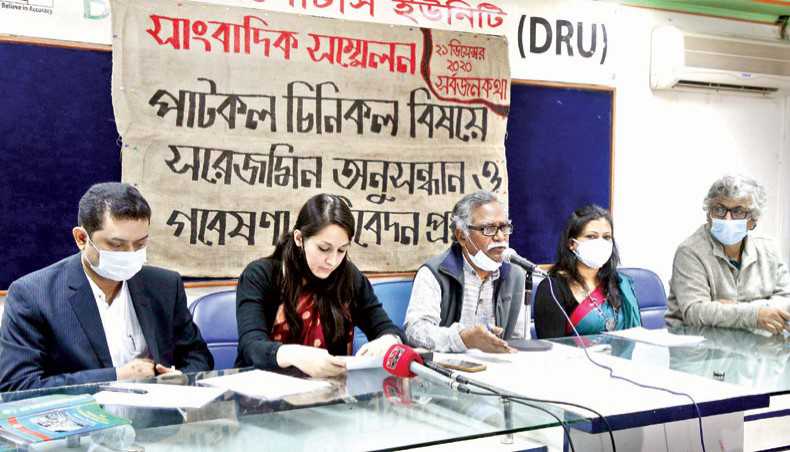Looting causes loss in Bangladesh jute, sugar industries: academics

Image: Collected
Academics and rights activists on Monday said that the state-owned jute and sugar industries faced losses and ruin because they fell in grip of plunderers in the home and abroad and that their closure was a national loss.
Addressing a press conference on the findings of field-level investigation and research on jute and sugar industries at the Dhaka Reporters’ Unity in the administrative centre, they stressed the necessity for continuing the production in the mills by modernising them and diversifying their products.
Presenting her paper, researcher Maha Mirza said that they found 31 of the 75 jute mills, used in the private sector between 1993 and 2010, closed as they could never be operated.
She stressed the necessity for reopening the mills under the government and cutting their losses by increasing their production, taking legal actions against the persons involved with corruption, immediate payment of all dues to the personnel and modernising the mills.
She also suggested that organic and natural fertilizer units ought to be create, electricity produced through cogeneration and refineries established at sugar mills for round-the-year productivity in addition to providing satisfactory support to the farmers for growing better-quality sugarcane in sufficient quantity and introducing necessary changes to the supply and distribution chains of sugar.
‘The lands and machineries of mills were looted through cheap rates, or huge amounts of mortgage were obtained against their lands,’ she said.
So, it's been demonstrated that the argument for expanding industries through privatisation does not have any real ground, she commented.
‘Not only the livelihood of jute growers, however the local economy also is determined by the jute mills in the Khulna region. We've seen that a huge number of groceries, restaurants, furniture shops and also small businesses are facing closure as the mills have already been shut,’ she continued.
Dhaka University accounting and information system professor Moshahida Sultana, presenting her paper on the sugar mills, said that the rate of sugar extraction from sugarcane in Bangladesh is merely 6 to 7 %, almost half of what India and Brazil obtain.
The expense of production and the losses were high also as a result of low extraction rate due to damaged and old machineries, the high make use of electricity, maintenance, transport, waste of amount of time in sugarcane processing, interests on loans and top-heavy administration, she said.
Sarbajankantha editor and Jahangirnagar University economics professor Anu Muhammad alleged that the jute industry had been ruined through the use of muscle power, cheating and misinformation.
The sugar industry was being closed to pave just how for importing the commodity in the interest of some businessmen.
DU international relations professor Tanzimuddin Khan said that the personnel and labourers had no responsibility for the losses in the mills, adding that they were incurring losses due to mismanagement and corruption.
Moderated by Anu Muhammad, the function was addressed also by Supreme Court attorney Jyotirmoy Barua, jute mill worker Abdul Halim Mithu and sugar mill employee Ferdous Imam.
Source: https://www.newagebd.net
Tags :
Previous Story
- Pharma export to Asean industry likely to reach...
- Bangladesh:Under-reporting by insurers contributes to significant revenue loss
- Ali Riaz: US method of Bangladesh to be...
- There's hope for the fantastic Barrier Reef yet:...
- 'Career Fair 2019' at BUTEX held
- '6th Pharma Career Fair 2019' begins in Dhaka
- UGC plans new syllabus to help get foreign...
- Thousands job-seekers throng Bangladesh university career fair